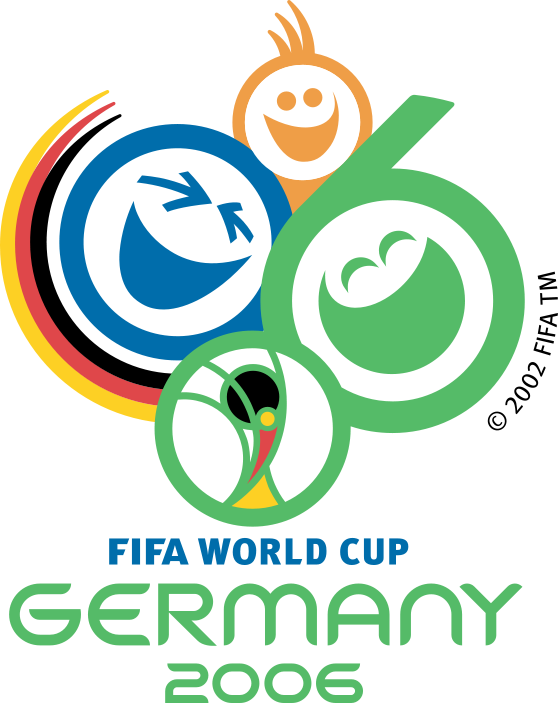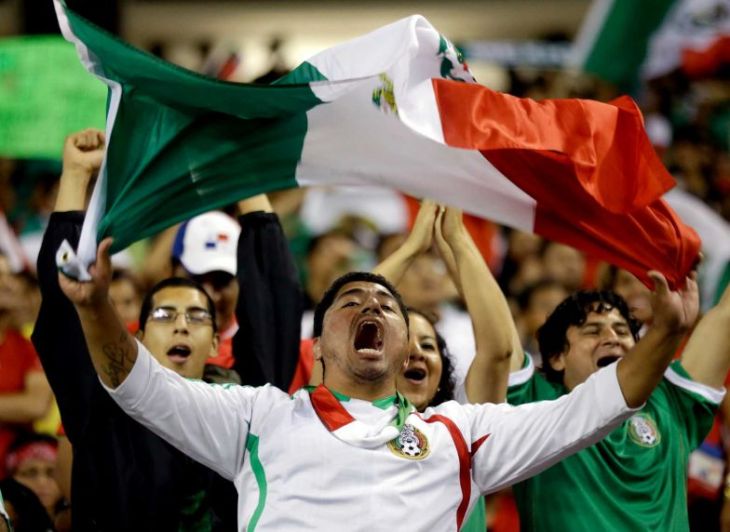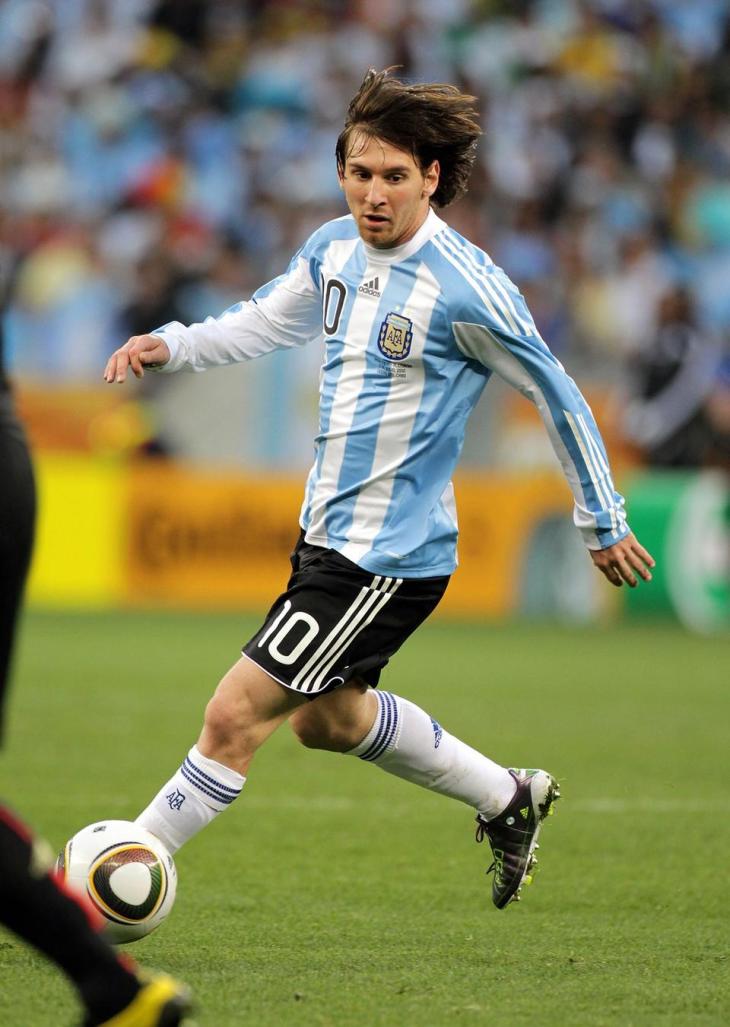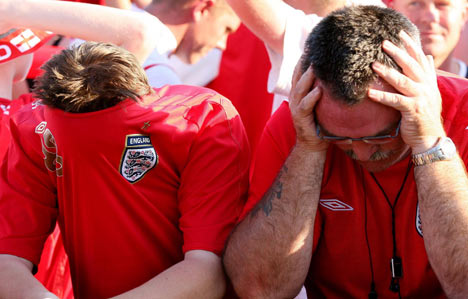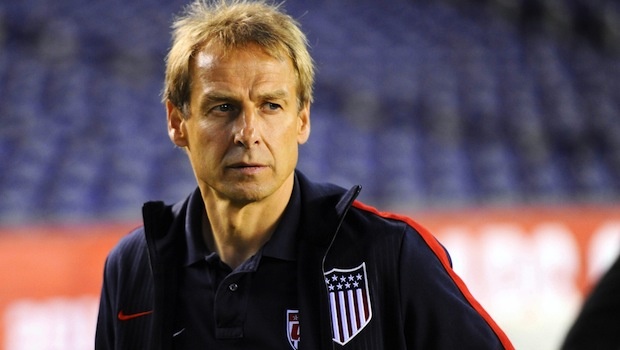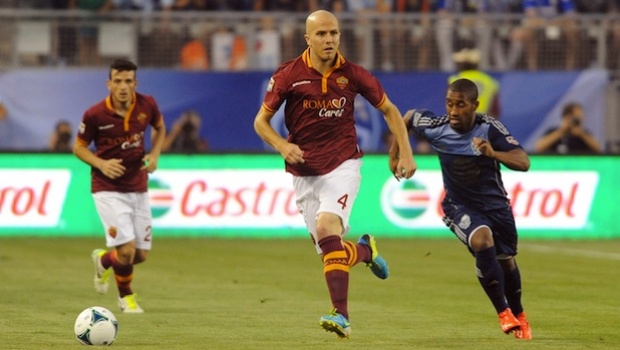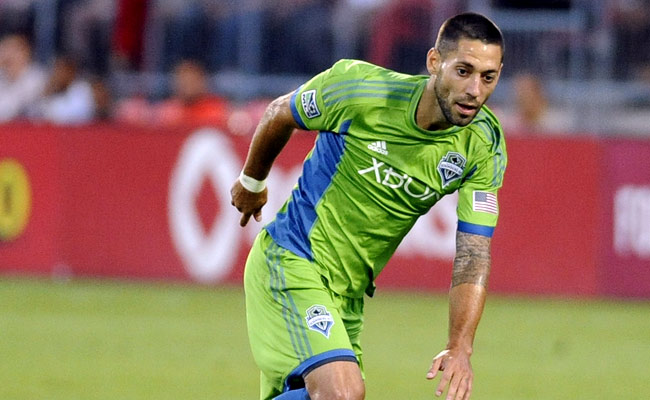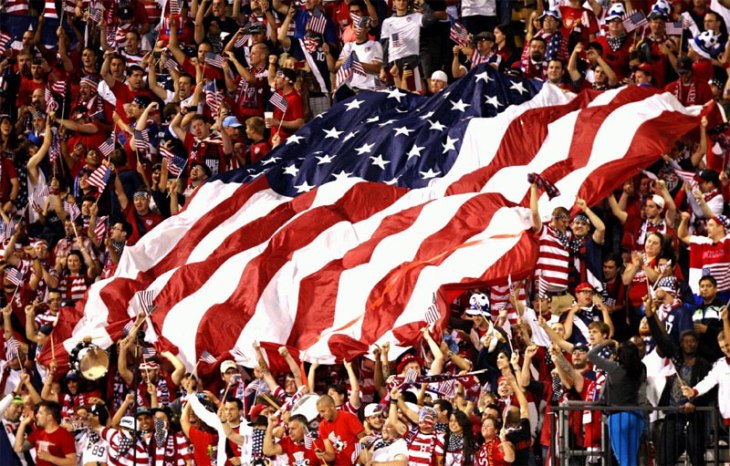2006 was the year I decided soccer wasn’t boring. Now, I always thought soccer was fun to play, but there just wasn’t enough action on the screen for me to sit and watch the sport. Moreover, professional soccer wasn’t even close to having taken off in America at that time. We rarely put the Premier League or any major leagues on TV, and when we did it was just for one big game (ESPN always played El Clasico for instance). Now this is well and good as you would think fair weather fans of the sport (like most Americans are) would just want to see the best competition and the most important games. However, this ends up being an incredibly disjointed experience for uninitiated viewers. The story lines would matter less to someone like me who isn’t familiar with them outside of what ESPN broadcast team decides to tell me that particular day.
So needless to say club football was not what swung me on soccer. Predictably enough, that would be the 2006 World Cup.
I am obsessed with rooting for flags. I love international competition. I love when sports means more to people than you’d think it would. I love the way nations get behind their various national teams, and especially how countries other than America do this. For a long time Americans have been spoiled by international sports. Not to be a braggart but for a long time we were kiiiiindof good at whatever we wanted to be good at, which ruins the fun of it. What is more interesting to me is the way Indians and Pakistanis love cricket. The way New Zealanders love Rugby. The way Canadians love hockey. I love when a nation has “A Sport” and the way the throw all their passion behind that particular sports team for international competition.
Enter: soccer. Not only is the one of the sports we never tried to be good at (call it arrogance, but I still believe if they NFL didn’t exist and we funneled those athletes into soccer we could be dominant in international soccer, but that’s a topic for another time) and therefore suck at, but it just so happens to be the sport that matters the most internationally on a broad scale. Now, its not every nation’s favorite sport, but to the world at large it is incredibly important. As such when I was 16 (my prime “I will watch any sport any time” age) and ESPN made the decision to broadcast every single game of the 2006 World Cup I was all in. Seeing those fans go absolutely nuts, living and dying with every play of every game was like crack for me. My nation failed to get out of the group stage, but lucky enough I have an Argentine friend who was studying abroad in my city at the time so I hopped on the Lionel Messi and Argentina bandwagon, and they’ve been my adoptive favorite ever since.
What I’ve always really wanted, however, is for my own country to be a contender. I want my passion to mean more than just “hey this is the good team I picked because my country likely doesn’t have a chance.” I want to have the same kind of passion the real Argentinians have for their team. The passion Mexicans have for their team. Hell, I’d even love the pessimistic passion Englishmen have for the Three Lions.
So after that World Cup I decided I loved international soccer, I was somewhat content living vicariously through whatever team Messi played for (club or international) but I wanted to make an effort to become a real USMNT fan. Its just more genuine to root for your own team then to hop on with someone else’s, and that’s what I really want.
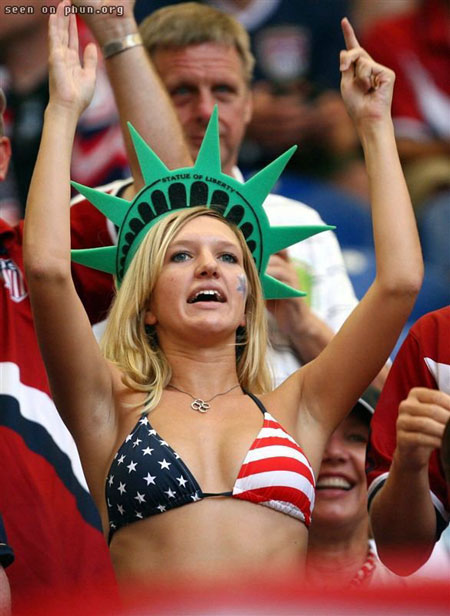
“Give me your tired, your poor, your huddled masses yearning to be free… and also a red card for Cristiano Ronaldo would be much appreciated this June…”
So from 2006 on I’ve been a fan of International Soccer (in spite of FIFA’s corruption and incompetence), I’ve made various attempts to begin following club soccer (although I haven’t managed to stick with a team that I really care about yet), but what I’ve really thrown myself into is the US Men’s National Team.
Now, being a USMNT fan is a complicated process. Soccer has some really cool cult followings in America, the MLS has been making wonderful strides (especially with the arrival of teams in the Pacific Northwest with the Sounders, Timbers, and Whitecaps), and American television companies like ESPN, NBC, and Fox have put colossal efforts into ensuring that Americans can watch every game of all the major leagues on TV. So the sports popularity is assuredly growing in the states, but its an incredibly slow process. Soccer is still a niche sport, and its not even as popular as other niche sports like hockey which crushes it in spite of the fact that hockey is very much a regional sport.

The American Outlaws have made great strides in the last decade and provide a strong core for the USMNT, even if Americans en masse haven’t fallen in line behind the team.
So anyway, soccer fans in America want the sport to be bigger. They want other American sports fans to appreciate it as well. In large part they want this because many Americans see the USMNT as a sleeping giant. I’ll say again, if it weren’t for the fact that the best American athletes gravitate toward the NFL and NBA (because that’s where the money is) we could put together an absolute Leviathan of a soccer team. Soccer needs to rise to at least the third most popular sport in America if we’re going to put together a truly competitive national team. And here is where a new debate enters the picture: what is the best way to popularize the sport in America? Now, I think the larger consensus is that international success will breed popularity for the sport in America. So how do you take a sport which is, at best, the 5th or 6th most popular sport in the country, and start funneling our elite athletic youth into the sport (without… y’know… doing what the Chinese do and sending them off to life long forced soccer camp…)
The two sides to this debate are 1) we need to have a popular domestic league loaded with American stars or 2) we need our best players to be playing at the highest level in the world. Lets start with the first of those issues.
1) We need to have a popular Domestic League
The deal here is the thought that Americans won’t want to follow a sport that they don’t have a direct connection to. We can look at a city like Seattle which has gone all in behind the Sounders (in large part because the NBA nefariously stole their NBA franchise and moved them to Oklahoma City, but that’s another issue). Now, these people are huge fans of the Sounders, they love going to those games, they rock Sounders gear all year long. Its a big deal. HOWEVER there is a positive hangover to their Sounders fandom, namely the fact that they are now SOCCER fans not just Sounders fans.
Ok so the larger idea here is that having a team that you can have true possession for (rather than just loving from afar like the armies of Man U and Liverpool fans in America have to do) you will be more likely to become truly passionate about your team. Moreover, this passion will carry over to the sport at large which hopefully means more young Americans will play soccer seriously, thus improving the pool of players available for international play. Moreover, the idea is that young kids like to watch sports live. If we want to energize the American youth about the sport of soccer, we need to have the best possible level of soccer available for them to watch right in their own back yard, and that means improving MLS as much as possible.
The major issue with this line of thinking, however, is the one put forward by current USMNT coach Jurgen Klinsmann. The MLS just isn’t up to the level of the international club scene right now. It is, simply put, inferior competition to the big Leagues in England, Spain, and Italy. Having our players stay in MLS then, means they will not be used to competing against the best competition in the world, and will therefore be at an inherent disadvantage whenever they make an international appearance, and have to pay guys who are well seasoned in the Premier League or Serie A.
2) We need Americans to Become Stars in the Best Leagues in the World
So, the other popular opinion is that we need to have our best players succeeding abroad. Now, this one seems kindof like counting your chickens before they hatch. If the problem is a lack of talent in the American player pool, I’m not sure how we’re supposed to have players skilled enough to dominate La Liga or the Premier League. Moreover, Americans have already proven that they won’t be forced into fandom by geography. Just ask all the Lakers fans in North Dakota, Kentucky, South Carolina, and Alabama if living outside of LA stops them from hopping on the bandwagon.

They’re like locusts I tell ya… a plague upon society… I mean look at this guy… Pirates hat and Lakers Jersey?? PICK A SIDE DAMN YOU!!! Disgusting. (Photo Credit, Susana Capra)
However, beyond that I really like this opinion. I don’t know that I totally buy into the idea that you can only buy into a sport by watching it live. ESPECIALLY in our modern, technology sodden day and age. It seems to me that the best thing for the National Team is to have our players competing against the toughest competition, thus familiarizing them with the increased level of international competition. Moreover, American sports culture is replete with cliches about how we only like winners and we only like the best. Well, let’s put our best players on to the best teams in the world and win. If Americans want to watch and root for the best, then lets carry that over to club teams. If Julian Green is the real deal we all hope he is then hopefully he can become a star at Bayern in the Bundesliga (one of the best teams in one of the best world leagues) and hope to build from there.
The best answer, however, seems to be a hybrid of the two. Of course our truly elite should go abroad and play for the bets teams in the world. That is the ideal. However, as things are currently constituted we don’t have enough players to truly saturate the big international clubs. So we’ll send our best and brightest there to become cornerstones of our international team, and give Americans a big club to hop on the bandwagon for.
Then, we need to do the best we can with MLS. MLS is incredibly important to popularizing the sport in America and it needs to become a competitive league ultimately, but it needs to grow at its own speed. If soccer becomes truly popular in the states as a result of international team success, growth for MLS will come until one day we hopefully wont HAVE to send our players abroad. The MLS will one day hopefully (maybe 50 years from now) be comparable to Serie A or the Bundesliga. That is when America will truly have arrived.
Now to bring things back to more recent events. There has been a bit of an exodus of American players from Europe back to MLS. There is a lot of anxiety about this. On one hand I’m excited about this. It means MLS is getting better. Indeed MLS is getting more competitive financially on the international scale because a lot of these players are coming back to get their big pay day and set their kids and grand-kids up financially for decades to come. However, its scary because in recent years it felt like America was starting to get a reasonable stable of players at the top clubs abroad. Dempsey (Premier League), Altidore (Premier League), Bradley (Serie A), Howard (Premier League)… the core of our international team was competing at the highest levels abroad.
Recently, however, and much to the chagrin of Coach Klinsmann, this trend reversed all at once. Dempsey came back to play for the Sounders, and although he has expressed a desire to return to Europe there’s no gaurentee he’ll be able to. Bradley had fallen out of favor with the coaches at Roma and wasn’t getting playing time so I’d rather have him at Toronto FC getting playing time than riding the bench in Serie A. However, the guy is very much the cornerstone of our international team. He’s the closest thing to a real international star we have in American soccer, and as I mentioned before, you want your top players to be in Europe. So now we only really have Altidore (whose Premier League team just got relegated and who didn’t play well for them last season, although he destroyed the Dutch League 2 years ago) and Howard (who has already announced he plans to retire once his current contract with Everton runs out) left for major pieces in Europe.
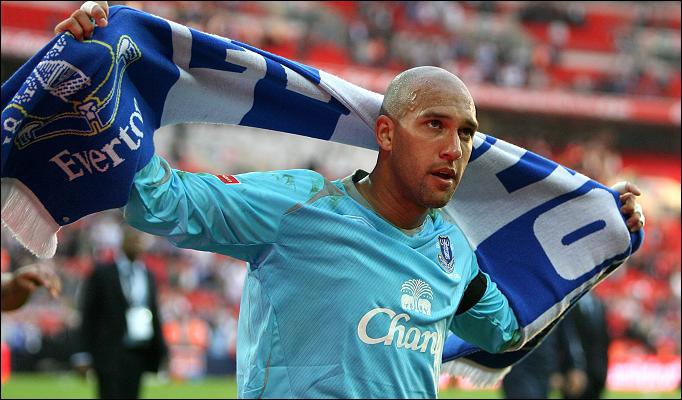
(Image via http://www.thesun.co.uk )
Ultimately this isn’t the end of the world. These players are still in their prime, but won’t be forever. We need to be more concerned about the next generation (Julian Green) than this generation of USMNT players in Europe. As long as Klinsmann’s institutional culture change toward an emphasis on Europe sticks, and as long as this crop of players returning to MLS injects even more energy into the league domestically, then we might have just stumbled into the best of both worlds. US Soccer will be just fine. Whats more concerning is our potential early exit in the Group Stage of the upcoming World Cup, after we made such amazing strides recently, skyrocketing into the top 20 in the world. However, an early exit in 2006 didn’t stop me from becoming a soccer fan, so I’m not willing to assume it will discourage the next generation of US soccer fans this World Cup is sure to create either.
